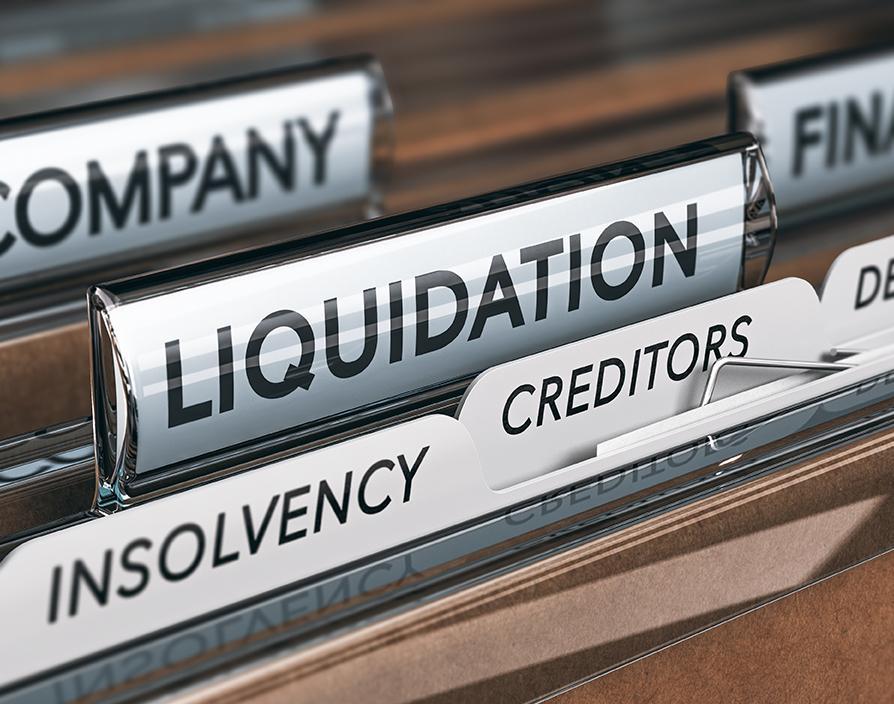Insolvency Practitioner Fundamentals Explained
Insolvency Practitioner Fundamentals Explained
Blog Article
How Insolvency Practitioner can Save You Time, Stress, and Money.
Table of ContentsAn Unbiased View of Insolvency PractitionerThe Only Guide for Insolvency PractitionerSome Of Insolvency PractitionerThe smart Trick of Insolvency Practitioner That Nobody is Talking AboutHow Insolvency Practitioner can Save You Time, Stress, and Money.The Best Guide To Insolvency PractitionerThe Best Strategy To Use For Insolvency Practitioner
Insolvency is when liabilities are above the worth of the company, or when a debtor can not pay the debts they owe. A company can come to be bankrupt due to a number of circumstances that bring about bad cash money circulation. When encountered with insolvency, a business or individual can contact lenders straight and restructure financial debts to pay them off.Bankruptcy can lead to insolvency procedures, in which legal action will certainly be taken versus the financially troubled individual or entity, and possessions might be sold off to settle impressive financial debts. Organization proprietors might speak to financial institutions straight and restructure financial debts right into even more workable installations. Lenders are commonly open to this method since they wish to be paid back and prevent losses, even if the repayment is on a postponed timetable.
Little Known Questions About Insolvency Practitioner.
The owner develops a proposal describing how the financial debt may be reorganized utilizing cost decreases or other prepare for assistance. The proposition reveals lenders how business may create enough capital for rewarding procedures while paying its financial debts. Commonly, a forgiven financial obligation might be taken into consideration income by the Irs (IRS).

Getting My Insolvency Practitioner To Work
When procedures cease, so does the company's revenue (Insolvency Practitioner). Some companies end up being bankrupt because their products or services don't progress to fit consumers' changing needs.
Costs go beyond incomes and expenses continue to be unpaid. Types of insolvency include cash-flow insolvency and balance-sheet bankruptcy. Cash-flow bankruptcy takes place when a firm has the assets to cover their financial obligations yet they remain in the incorrect form, such as property as opposed to liquid funds. Balance-sheet insolvency, on the other hand, suggests an absence of properties in any form to cover financial obligations.
The IRS states that an individual is financially troubled when the overall responsibilities go beyond overall possessions. A insolvency, on the other hand, is an actual court order that depicts just how an insolvent individual or service will pay off their creditors, or just how they will certainly offer their assets in order to make the payments.
Unknown Facts About Insolvency Practitioner

Financial obligation debt consolidation is when you incorporate numerous fundings into one new finance, often to accomplish much better terms. Insolvency is not the exact same see it here as personal bankruptcy, although a company that has ended up being bankrupt may apply for insolvency. Bankruptcy is the state of not being able to pay your responsibilities while personal bankruptcy is a lawful process to discharge your financial see this page debts.
Understanding the elements that can result in bankruptcy, such as overspending, can assist you prevent bankruptcy and its repercussions.
Some Known Questions About Insolvency Practitioner.
It is well understood that supervisors and policemans of firms (and supervisors of limited responsibility companies) owe fiduciary tasks to their organizations and their shareholders (or members). These fiduciary commitments are defined by state statutes and, though there are variations from one state to another, they usually consist of a task of commitment and a duty of care.
The obligation of treatment requires supervisors and officers to work out persistance, to make informed choices, and to act in excellent confidence so that their actions are in the most effective passion of the firm. Though beyond the scope of this discussion, some states enable these tasks to be restricted either by so keeping in mind in the business records or following other demands.
The Only Guide to Insolvency Practitioner
Many states define insolvency in two means( 1) when a business's obligations end up being greater than the amount of its properties or (2) when the business ends up being unable to pay its debts as they come to be dueand accept both definitions (Insolvency Practitioner). The shift in duties takes place since when a company is bankrupt, there is no worth in click for more info the company past that owed to the business's financial institutions to ensure that the equity holders no more have an economic stake in the firm
Take care regarding providing investors favoritism at the cost of financial institutions (e.g., authorizing and funding a returns or a supply redemption). Be mindful concerning favoritism between classes of investors. Clear up initiatives to learn all the truths prior to taking a specific training course of action; supervisors need to truly believe that any type of choices made are in the best passions of the company in its whole (i.e., choices will be examined in hindsight taking into account the impact of such actions on the firm).
In any bankruptcy or bankruptcy case, payments made to specific lenders at the expense of other financial institutions can be clawed back, specifically if there is some link in between the firm and the creditor. Think about proposing at an annual stockholder meeting (or any type of various other conference of stockholders) a resolution attesting that all prior service decisions and activities taken by the supervisors and policemans of the firm were taken in good belief after a workout of practical treatment.
What Does Insolvency Practitioner Do?
Completely disclose any kind of individual or business partnerships with celebrations beyond of purchases entailing the corporation to stay clear of the look of a dispute of interest. In reviewing possible fund increasing transactions or a sale of possessions of the distressed corporation, realize that these deals might be inspected later on due to any subsequent development of directors' fiduciary tasks to include lenders.
Report this page